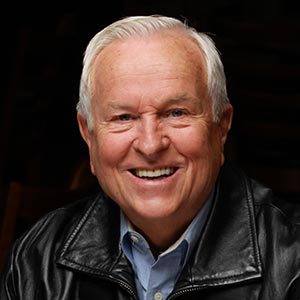Jo: When we look at the life of Jesus and we look at what his life, what his teaching said about how to treat others, about how he feels about the world around him, it’s hard initially to understand it because we don’t always identify the context in which he’s in. We don’t identify with how restrictive it was. How the culture of the day treated different people.
The fact that he would be near a leper, who was considered unclean, where lepers were assigned to colonies, as it were, because the belief at that time of that culture was that if you have that kind of disease you’ve done something. There was a reason, that reflected on you. He would touch them, that he would heal someone, is cutting through so many barriers within society.
John: The outcasts, the marginalized, the prostitutes, the tax collectors who were the thieving immoral partiers of his day, they flocked to him. So much so that among the religious crowd Jesus got a bad reputation. They called him a drunk and glutton and friend of sinners. That’s what they called Jesus. Now, he wasn’t a glutton and he wasn’t a drunkard, but he hung out with them and they loved him.
Bobby: You see how there’s not a one size fits all response to Jesus with people. He doesn’t treat this woman like he would this man or this religious person like this nonreligious person. He knows people and he addresses them and addresses the issues of their heart accordingly.
He sits down with a woman at a well who’s been married five times, who’s living with some guy and he offers her forgiveness and living water. He accepts her and talks to her when she’s an outcast. He’s the man we all aspire to be. I would like to be that nice. I would like to be that caring. I would like to be that thoughtful.
Jo: When we read in the gospels about a woman caught in adultery and we know the system of the day, the law of the day, is saying that she should be stoned to death. I kind of wonder why I didn’t say the guy should too, but that’s another story. He says, and you see in the story and the intensity of the story that they’re saying, “Okay, Jesus what do we do. We’ve caught her; you know what should happen here.”
Jesus would take the time and say, “If any of you’ve never made a mistake, never got it wrong, never missed the mark, you throw that first stone,” not only says something about the value of that woman, but challenges how people perceive people and how easy it is to judge, how easy it is to make ourselves look good in the light of someone else’s life.
John: If you go and you just read the stories of Jesus, the eyewitnesses, Matthew, Mark, Luke, and John who wrote about him and you just go what if God’s really like that. You go, ‘that’s what I’ve always hoped, that God would love us that much.’ Even in our brokenness and our hurt he comes and he restores. He doesn’t come to condemn, he actually comes to set us free from the fear of condemnation.
Jesus claimed to remove every barrier between all of humanity and God except one; he doesn’t take away our free will. We don’t have to jump through religious hoops. We don’t have to prove that we can keep the Ten Commandments, the Eightfold path, the Five Pillars, or the Moral Law perfectly, because we can’t. Jesus came to restore every willing human and make it so that all we have to do is turn our hearts back to God.
(Content from: ExploreGod.com)













